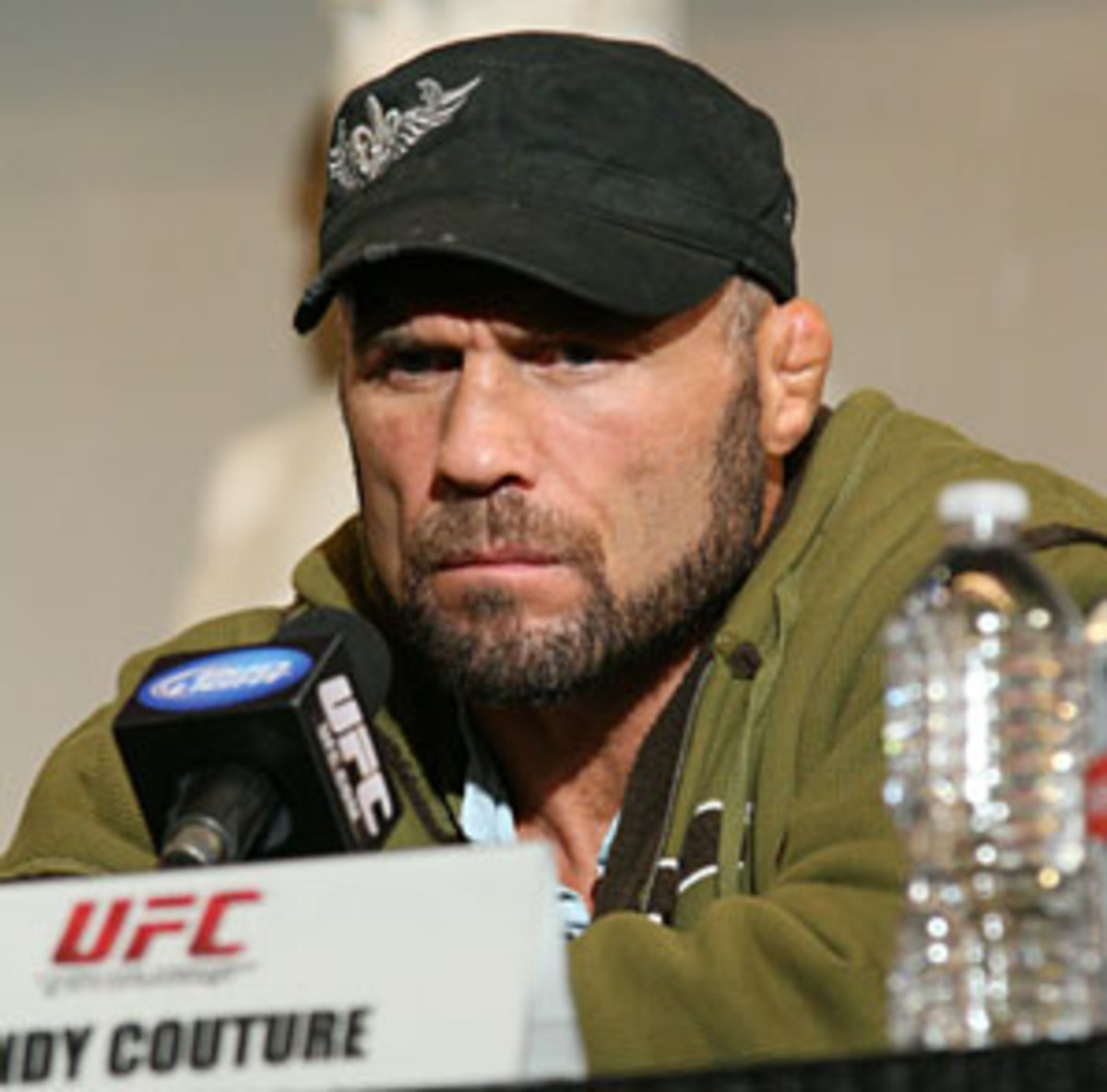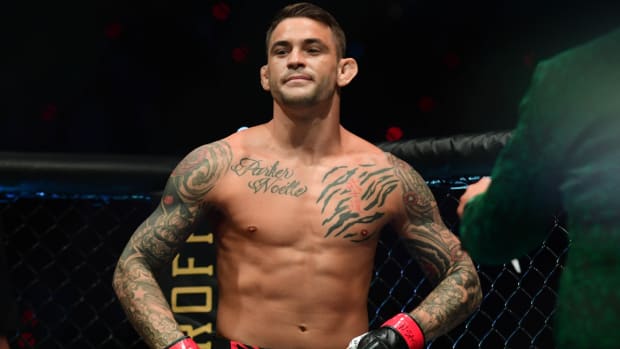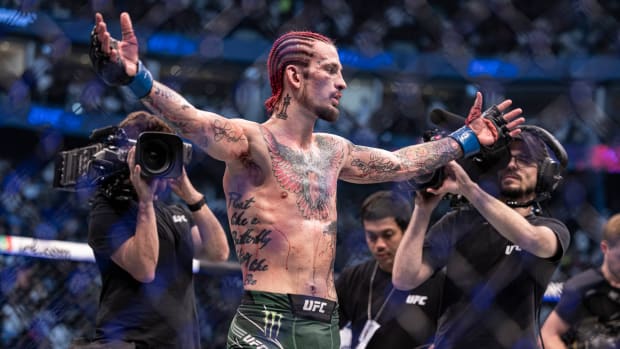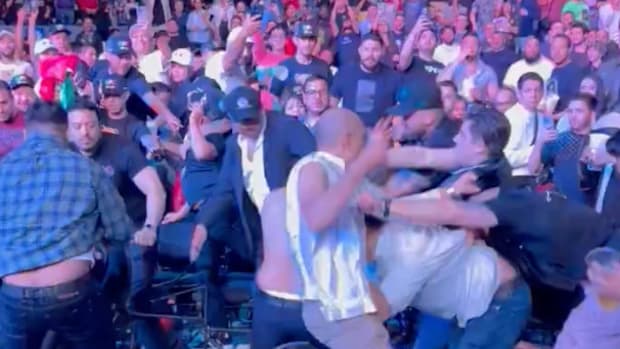Like in other sports, MMA fighters don't know when enough's enough
Eventually, every fighter has to come up with an answer to one question: How do you know when enough is enough?
Is it when you've already held titles in two weight classes and simply don't have much new ground left to conquer, as in the case of 47-year-old Randy Couture?
Or is it when you have 13 screws and a titanium mesh holding your cheek together, as in the case of 38-year-old Nate Quarry?
Or maybe it's when you've been cut from the UFC and your career is beginning to seem like it might be a game of diminishing financial returns, as 31-year-old Gabriel Gonzaga indicated recently.
For the lucky few it's a choice they get to make gradually, and only after they've changed their minds a few times.
Occasionally, as with former UFC light heavyweight champion Chuck Liddell, who will be 41 in December, it's a choice your boss makes for you. More often, as with 46-year-old Ken Shamrock, it's a choice you probably should have made long ago, but either can't afford or can't stomach the thought of it.
It's a problem all pro athletes must deal with eventually, but it's different for MMA fighters. There's no singular league to get drummed out of as a signal that your career is over. You might get dropped from one organization, but as the elder Shamrock continues to prove (he has a fight scheduled in South Africa in a couple of weeks, by the way), you can almost always find some fight promotion willing to pay to see how well your blood clots these days.
Because the final decision is almost always left to the individual fighter, the temptation to go on too long is incredibly strong. So, too, is the financial incentive for the guys who never earned top dollar even in their primes.
Guys like Couture can retire comfortably and operate gyms, sell gaudy T-shirts or get the occasional speaking role in a movie. Who can blame him for not wanting to get punched in the face for a paycheck when the alternatives are so appealing? But that's not the reality for the vast majority of MMA fighters.
Consider the guys who began their careers at or around the start of the 21st century and are now a decade or so in. That includes some fighters who have become household names, like Forrest Griffin and Quinton "Rampage" Jackson, but plenty more who never so much as smelled a book or movie deal.
Consider Scott Smith, who as recently as a few years ago was taking short-notice fights right after surgery just so his kids could have a Christmas that year. Or what about Phil Baroni, who's clinging to a UFC contract with a combination of name recognition and a willingness to take a beating, but who has more lucrative yesterdays than he does tomorrows?
As MMA continues to grow into a mainstream sport in America, there's a moment of truth on the horizon. There's going to come a point when the fighters with whom today's fans grew up will be looking at their broken bodies and their dwindling bank accounts and making some unpleasant choices.
You think it's hard to see one former great like Shamrock grimly soldiering on in increasingly haggard performances? Wait 10 years. Wait until the guys who fought through MMA's lean years start to enter that twilight phase. The younger class may be reaping the harvest now, but that doesn't help the ones who broke their backs sowing the seeds.
Prize fighting of all sorts is an endeavor that doesn't exactly encourage people to think about the long run. If you did, you'd probably think twice about punching someone with your broken hand or putting off surgery for your injured neck or closing those cuts on your face with super-glue rather than stitches.
That doesn't mean fighters don't still have themselves to blame when they fail to save or invest wisely. Certainly, many have been smart enough with their money that they can afford to walk away when it's time, rather than being dragged out by consecutive losses and mounting injuries that don't heal like they used to.
But unlike other pro athletes who are guaranteed comfortable salaries even while riding the bench, many MMA fighters are still getting in the cage just to make a mortgage payment. They may have poured just as much of their lives into this sport as the select few superstars, but they didn't get the same rewards.
As Jack London once wrote about boxers, many of today's MMA fighters have purchased experience with youth. Now that they have the experience to know how this sport works and exactly what toll the give-and-take of it all exacts, their youth is all spent. In many cases, so is their health.
That's the way it goes for the men in this sport, as it went for the boxers before them. Eventually they all reach the end, and eventually they have to figure out what comes next. The future isn't going to be pretty for all of them. It is, however, inevitable.






